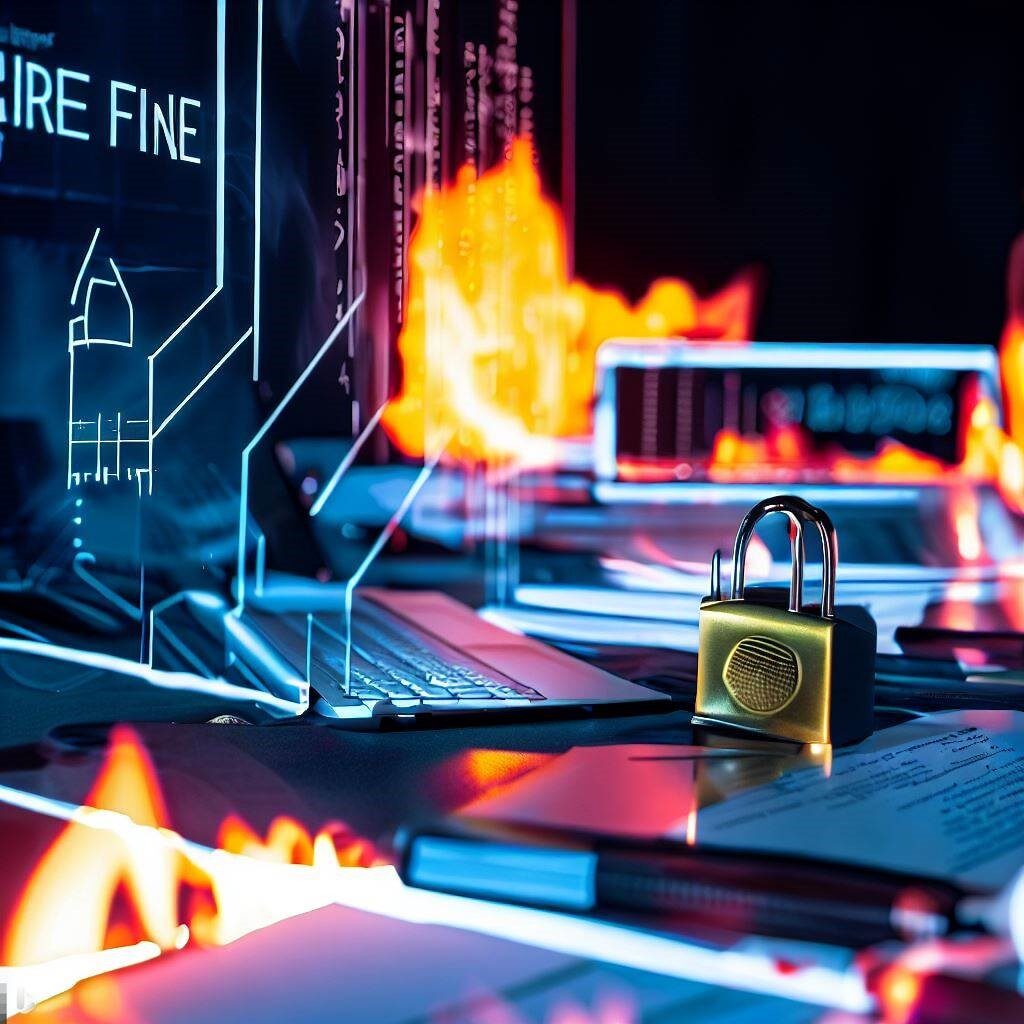As a member of our campus’ emergency operations center teams and cybersecurity stakeholders (hint: everyone on campus), we need to recognize the importance of being prepared for a wide range of disruptions and disasters that can affect higher education institutions. In recent years, my campus has experienced various natural and man-made incidents, including floods, fires, technology disruptions, and power outages. In addition to these challenges, the increasing prevalence of cybersecurity threats, such as ransomware, distributed denial of service (DDoS), and other forms of attacks, has heightened concerns within higher education. This is primarily due to the valuable student, research, medical, employee, and financial data that higher education systems possess. To enhance our preparedness and response capabilities, we regularly conduct tabletop exercises that focus on various scenarios.
Coming up with engaging and realistic tabletop scenarios can be a challenge at times. This is where ChatGPT, an AI language model, can provide value by suggesting scenarios and guiding questions to consider. As a principle, cybersecurity professionals and others who design and coordinate these tabletop exercises should use ChatGPT as an initial attempt or as an idea generator to stimulate creative thinking and ensure a comprehensive approach to their exercises.
Below are four tabletop exercises designed to address different aspects of campus preparedness and cybersecurity concerns. These exercises, generated by ChatGPT, include detailed scenarios and guiding questions to help participants better understand the potential risks and challenges and facilitate discussions on effective response strategies:
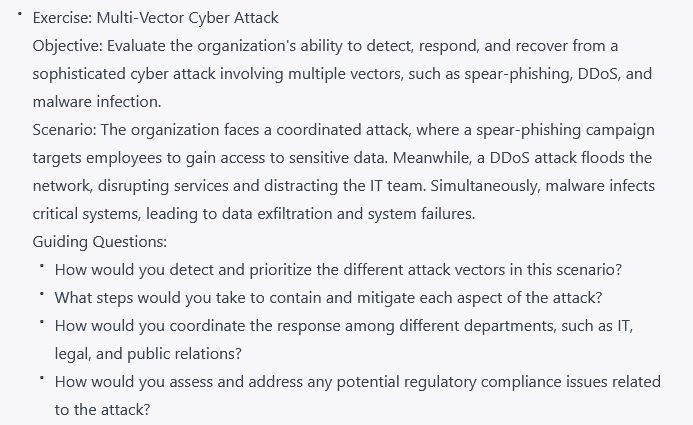
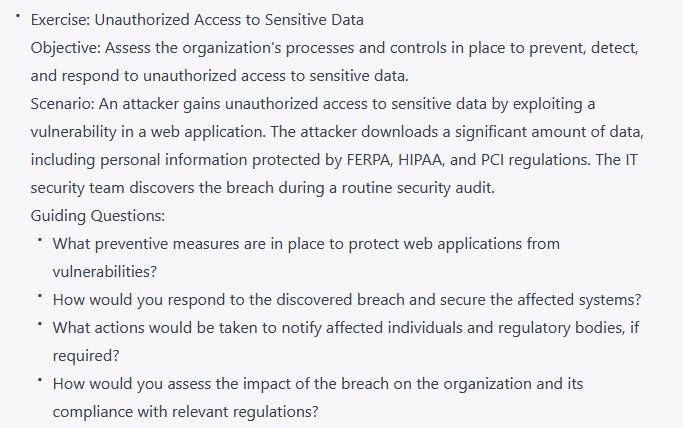
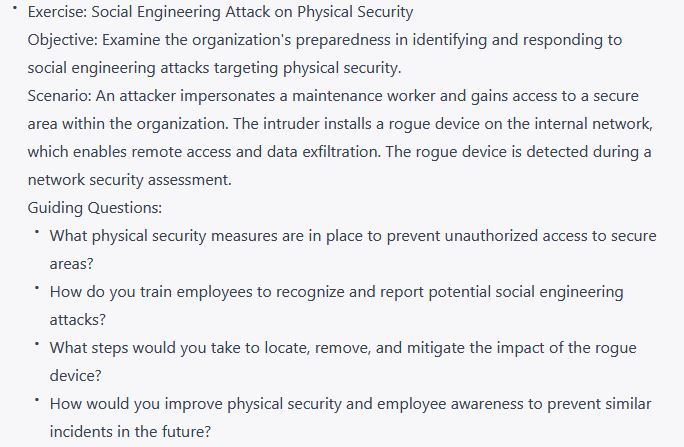
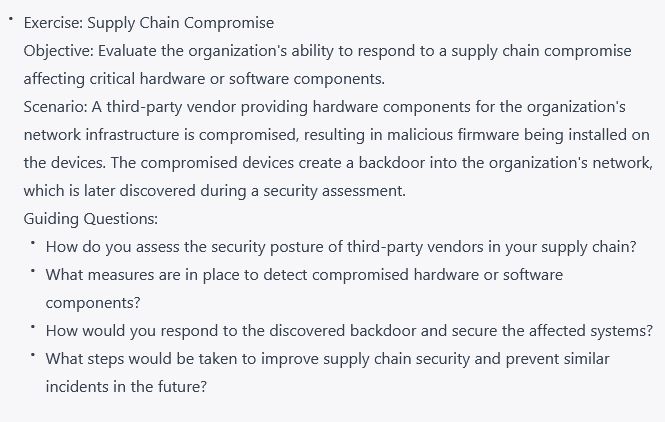
By engaging in these tabletop exercises, campus’ emergency operations center team and cybersecurity stakeholders can proactively identify gaps in our preparedness and response plans, refine our strategies, and strengthen our ability to protect the campus community and its valuable data assets. These exercises, whether generated by ChatGPT or other means, encourage collaboration, foster communication among departments, and promote a culture of continuous improvement in our emergency response and cybersecurity efforts. Using ChatGPT as a tool to generate initial ideas for tabletop scenarios can significantly streamline the process and provide valuable insights for enhancing campus preparedness.
